41 understanding food labels canada
Food labels - Canada.ca Documents for industry that outline rules for specific labelling requirements. Understanding food labels About nutrition facts tables, serving size, the list of ingredients, percent daily value and nutrition claims. Food label requirements Industry Labelling Tool for Canadian food inspectors and stakeholders. Shopping for Canadian food Food labelling for consumers - Canadian Food Inspection Agency Food businesses have a transition period to meet them, during which they must comply with either the former or the new requirements. Consumers can use food labels to make more informed choices about the food they purchase. Both Health Canada and the Canadian Food Inspection Agency (CFIA) provide direction on food labelling in Canada.
Food labelling changes - Canada.ca We've made improvements to the nutrition facts table and list of ingredients on food labels. These amendments will improve the nutrition facts table and list of ingredients to make them easier to understand thereby helping the people living in Canada to make informed choices.

Understanding food labels canada
Taking stock: Reducing food loss and waste in Canada Foreword. Methane is a powerful greenhouse gas generated following the disposal of food waste in landfills. As part of a range of activities focused on reducing methane emissions, under the Strategy on Short-Lived Climate Pollutants, Environment and Climate Change Canada (ECCC) is consulting stakeholders on strategies to reduce avoidable food loss and waste. Understanding Food Labels - Practically Nutritious This post is meant for those foods that have food labels, but many healthy foods are not labeled at all. These include fresh fruits and vegetables, as well as raw meats, poultry, fish, and seafood. These foods are certainly part of a healthy diet and should be part of your grocery list! The Bottom Line 1. Look at the serving size first 2. Understanding Food Labels in Canada - EY LiveWell Nutrition labelling became mandatory in Canada in 2007 on all prepackaged foods. Since then, nutrition and ingredient information has been listed on the food label. They have been designed to be easy to find, simple to read and to allow Canadians to make informed food choices. What information is on
Understanding food labels canada. Understanding Food Labels - Nutrition: Science and Everyday Application ... The FDA uses the following definitions for interpreting the %DV on food labels:4 5%DV or less means the food is low in a nutrient. 10% to 19%DV means the food is a "good source" of a nutrient. 20%DV or greater means the food is high in a nutrient. Understanding Food Labels in Canada - Health @ Husky Nutrition labelling became mandatory in Canada in 2007 on all prepackaged foods. Since then, nutrition and ingredient information has been listed on the food label. They have been designed to be easy to find, simple to read and to allow Canadians to make informed food choices. What information is on Use food labels - Canada's Food Guide Food labels can help you: compare and choose products more easily; know what ingredients a food product contains; choose products with a little or a lot of the nutrients that are of interest to you; Changes to food labels. Over the next 4 years, you will see changes on food labels. These changes will make it easier to: know what's in your food; make healthier food choices Food Product Labelling - Retail Council of Canada Canada's rules for food and beverage labelling and complex and constantly evolving. Knowing the various federal and provincial requirements are essential for retailers, especially private label brand owners. RCC advocates for rules that make labels clear and easy to understand for consumers and cost-effective to implement for retailers.
Canadian nutrition labeling - Labelify Made for Canada. Designed from the ground up to generate labels in compliance with the Food and Drug Act of Canada. Extensive label formats. All the major label formats. In English, French, or both. Your recipes in the cloud. Secure in the cloud with strong SSL encryption and frequent backups. Food label: ingredient list - Canada.ca This means that a food contains more of the ingredients found at the beginning of the list, and less of the ingredients at the end of the list. Example: The ingredient list below is for bran cereal. The ingredient that is present in the largest amount is whole wheat , and the ingredient present in the smallest amount is minerals . How To Read & Understand Canadian Food Nutrition Labels Below is an outline for how to read these labels in stages and what to look for at each stage: 1. Serving Size - This is often overlooked, but worth noting. Something could appear great, but you might need to multiply all the nutrition facts by 2 or 3 for the actual amount you plan to eat. 2. Reading food labels - Food Allergy Canada Understanding food labels Quick Facts You can't tell just by looking at a food if it's safe to eat - it's necessary to check labels. Reading labels can take extra time, but it's an important part of managing your allergies day-to-day. Why? 1. Food allergens may be present in places you don't normally expect. 2.
Food Labels - City of Toronto Food Labels. In addition to Canada's Food Guide , the nutrition information on food labels can help you make informed food choices. There are three parts to the nutrition information on a label. Provides information on the calories and 13 nutrients for the serving size shown on the label. The information can help you choose foods higher in ... Nutrition Labelling Online Course - Canada.ca Completing this course will increase your understanding of the latest nutrition labelling information. Further, if your work involves nutrition education, you can use this updated information to share with Canadians. Course topics include: Food labelling in Canada Nutrition facts table Serving size % daily value List of ingredients Nutrition claims iLable Food Labels | Food Label Printing | Food Label Maker Canada iLable Food Labels | Food Label Printing | Food Label Maker Canada. Toronto: 416-491-8080. Durham: 905-492-8800. Most Canadians don't understand food nutrition labels The truth is, even when Canadians want to make healthier choices, many don't know how to begin. And our food labels don't help. Studies show that most Canadians don't comprehend the percent daily value or the variety of units (g, ml, percentages) common on food nutrition labels. One Canadian study showed that less than half of ...
Nutrition claims - Canada.ca There are two types of nutrition claims on foods: nutrient content claims and health claims. These claims must also follow certain rules from Health Canada to make sure that they are consistent and not misleading. These claims are optional and may be found on some food products. Nutrient content claims describe the amount of a nutrient in a food. A good source of iron is an example of a nutrient content claim.
Understanding food labels - Canada.ca Understanding food labels Food labels, nutrition facts tables, serving size, ingredients, % daily value, nutrition claims. Services and information Nutrition facts tables How to use, what is in them, foods that don't have a nutrition facts table. Serving size How to use the serving size on nutrition facts tables. List of ingredients
Understanding a food label - Food Labelling in Canada (Mobile) Understanding a food label - Food Labelling in Canada (Mobile) Close Mobile and return to text version.
Reading and Understanding Food Labels in Canada - GFIT Wellness Reading and Understanding Food Labels in Canada Step 1: Look at the serving size The serving size is at the top of the Nutrition Facts table. All the information in the... Step 2: Watch out for misleading claims Health claims are mainly designed to just catch your attention and convince... Step 3: ...
Understanding food labels | Gouvernement du Québec - Quebec Food labels are a good way to find out about the nutritional value of foods. They can help you make smart food choices. You will find valuable nutrition information on pre-packaged foods if you read their labels, namely: Nutrition facts table List of ingredients Nutrition claims Food product labelling is regulated by Health Canada.
Understanding Food Labels in Canada - Unlock Food Step 3: Look at the percent daily value (% DV) The percent daily value (% DV) shows you if a food has a little or a lot of a nutrient. 5% DV or less is a little of a nutrient. 15% DV or more is a lot of a nutrient. The % DV is meant to act as a benchmark to determine if that food is high or low in a certain nutrient.
Nutritional Facts Table - Food Labels Canada This helps consumers understand how much sugar and other nutrients (like sodium) are in their food: 5% or less is a little 15% or more is a lot Updated List of ingredients List of ingredients The changes to the list of ingredients include: Grouping sugars-based ingredients in brackets after the name 'sugars'
Understanding food labels | Nestlé Understanding food labels. Making healthy choices for you and your family can be challenging. Our aim is to provide you with relevant information on all our products to help you make healthier choices.
Understanding Food Labels - Home & Family Nutrients In Canada, 13 core nutrients must be listed on food products. These include: fat, saturated fat, trans fat, cholesterol, sodium, carbohydrate, fibre, sugars, protein, vitamin A, vitamin C, calcium, and iron. There are additional nutrients which may also be included but are not mandatory. Healthy eating suggestions include:
How to read a food label - concordia.ca Food labels are required by law in Canada on all packaged foods, with a few exceptions. There are three main kinds of information on a label: the Nutrition Facts panel, the ingredient list and the nutrition claim. How to read a Nutrition Facts panel
Food Labeling: Revision of the Nutrition and Supplement Facts Labels 27.5.2016 · Additionally, one foreign government agency, Health Canada, provided factual information and comments on various aspects of its review and update of nutritional information on the Canadian food label. Health Canada did not advocate a particular outcome or did not provide comments on possible changes or suggestions to our proposed rule. 1.
Understanding a food label - Canadian Food Inspection Agency Certain elements of food labels are mandatory on most packaged food products and must follow specific rules. These key labelling elements are: the Nutrition Facts Table, list of ingredients, allergen statements - especially if you or someone you know has food allergies - and date marking information, such as best before dates. Nutrition Facts Table
Understanding Food Labels | The Nutrition Source | Harvard T.H. Chan ... Under the Food Allergen Labeling and Consumer Protection Act of 2004, eight major food allergens—milk, fish, tree nuts, peanuts, shellfish, wheat, eggs, and soybeans—are required to be listed in a "contains" statement near the Ingredients list if present in a food. An example would be "contains wheat, milk, and soy."
Most Canadians don't understand food nutrition labels Studies show that most Canadians don't comprehend the percent daily value or the variety of units (g, ml, percentages) common on food nutrition labels. One Canadian study showed that less than half of participants could identify the number of calories in a soft-drink bottle even after consulting the nutritional labels.
Serving size - Canada.ca Serving size is not necessarily the suggested quantity of food you should eat. The serving size tells you the quantity of food used to calculate the numbers in the nutrition facts table. By checking a product's serving size, you can: understand how much of a nutrient you are eating; compare calories and nutrients between 2 similar packaged food ...
Understanding food labels - Human Kinetics Canada You have already learned the importance of exercise, and this step will help you understand the importance of your nutrition needs and how to meet those needs. A nutrient is a substance the body needs in order to work properly.
Food Allergy Research & Education FARE is the largest private funder of food allergy research advocating on behalf of the 32 million Americans living with potentially life-threatening food allergies.
Reading and understanding food labels - Human Kinetics Canada Food labels are not required on fresh meat, poultry, raw seafood, fresh fruit and vegetables, food prepared or processed in store, foods that contain very few nutrients (e.g., vinegar, spices), and alcoholic beverages, although you can find nutrient information for these foods on Health Canada's website.
Percent daily value - Canada.ca Use % DV to compare 2 different food products to help you make an informed food choice. You can use % DV to choose products that are higher in the nutrients you may want more of: fibre; vitamin A; calcium; iron; You can also choose products that are lower in the nutrients you may want less of: saturated and trans fats; sodium
Understanding Food Labels in Canada - EY LiveWell Nutrition labelling became mandatory in Canada in 2007 on all prepackaged foods. Since then, nutrition and ingredient information has been listed on the food label. They have been designed to be easy to find, simple to read and to allow Canadians to make informed food choices. What information is on
Understanding Food Labels - Practically Nutritious This post is meant for those foods that have food labels, but many healthy foods are not labeled at all. These include fresh fruits and vegetables, as well as raw meats, poultry, fish, and seafood. These foods are certainly part of a healthy diet and should be part of your grocery list! The Bottom Line 1. Look at the serving size first 2.
Taking stock: Reducing food loss and waste in Canada Foreword. Methane is a powerful greenhouse gas generated following the disposal of food waste in landfills. As part of a range of activities focused on reducing methane emissions, under the Strategy on Short-Lived Climate Pollutants, Environment and Climate Change Canada (ECCC) is consulting stakeholders on strategies to reduce avoidable food loss and waste.

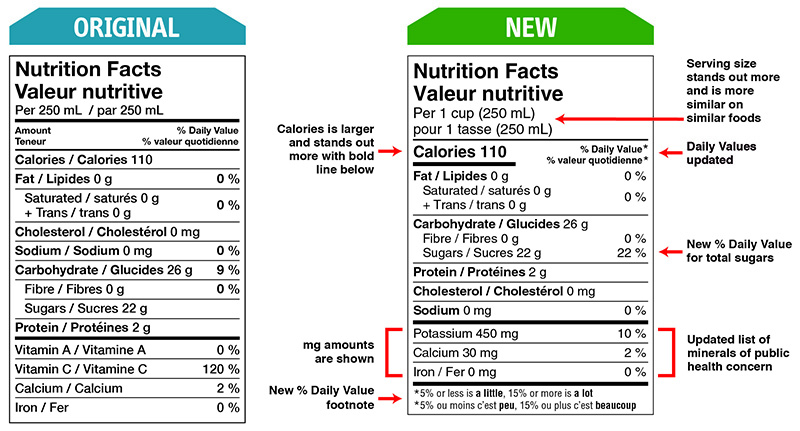
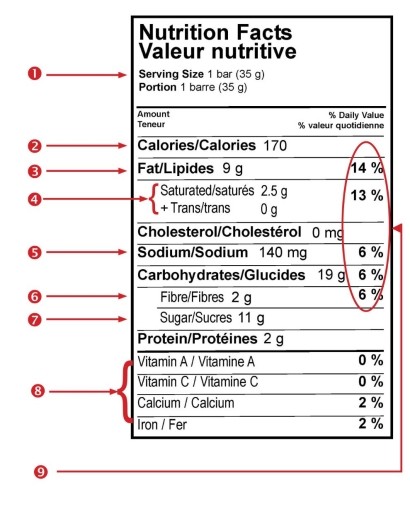


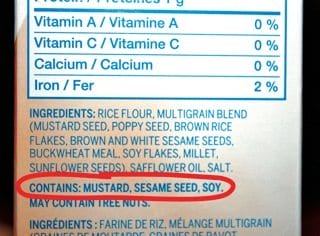

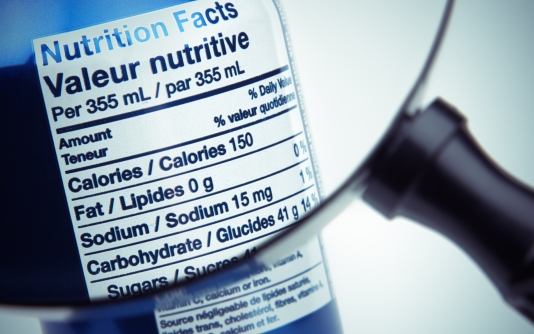

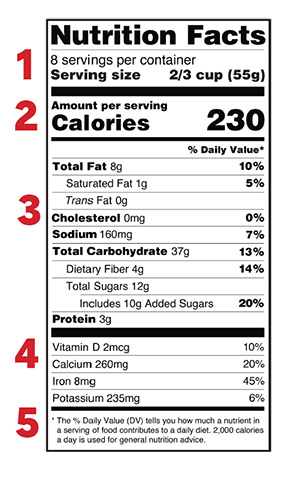


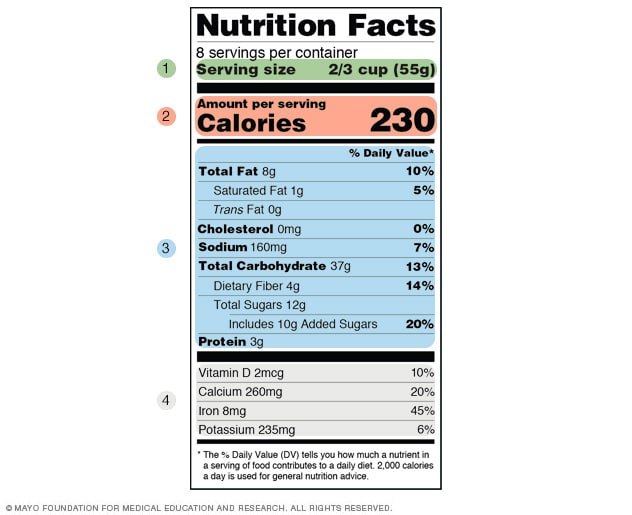

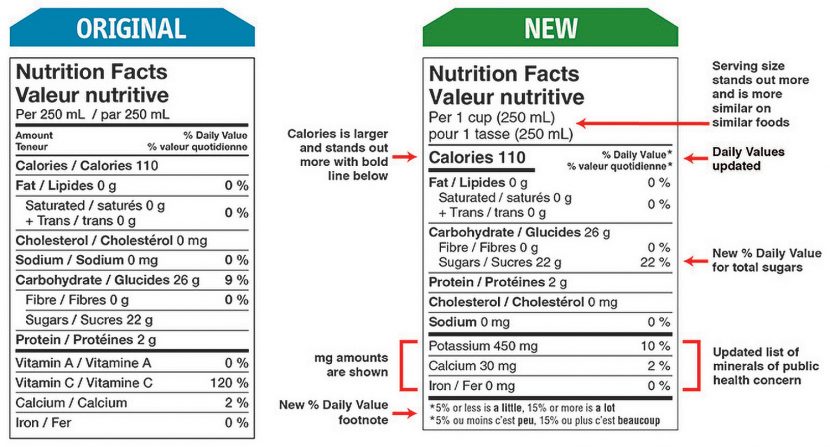

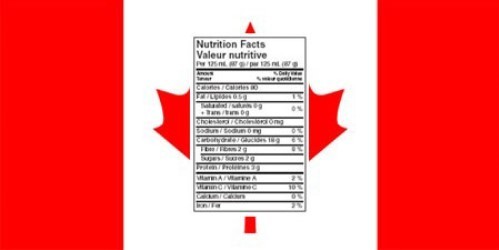








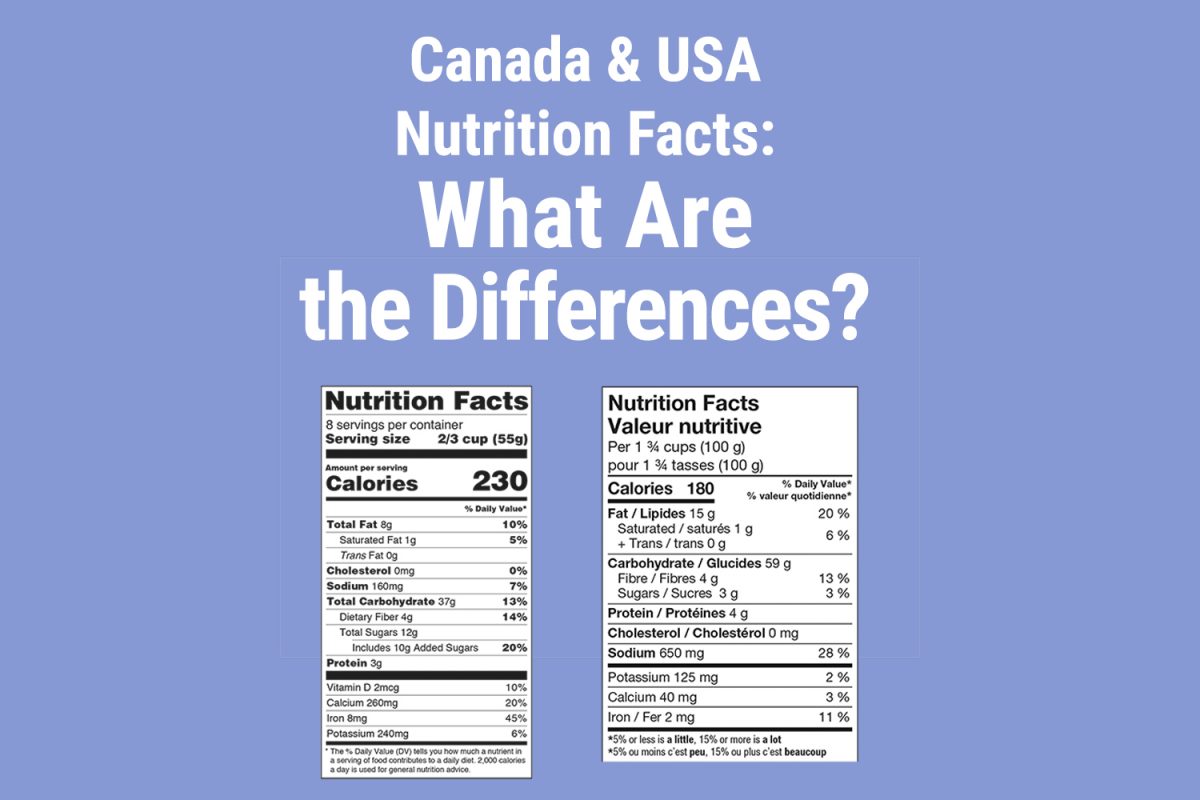
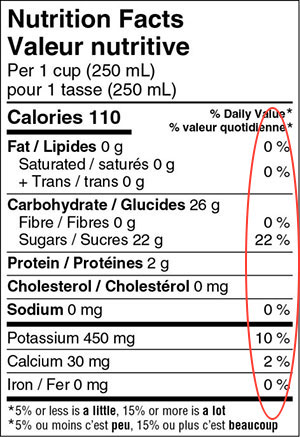
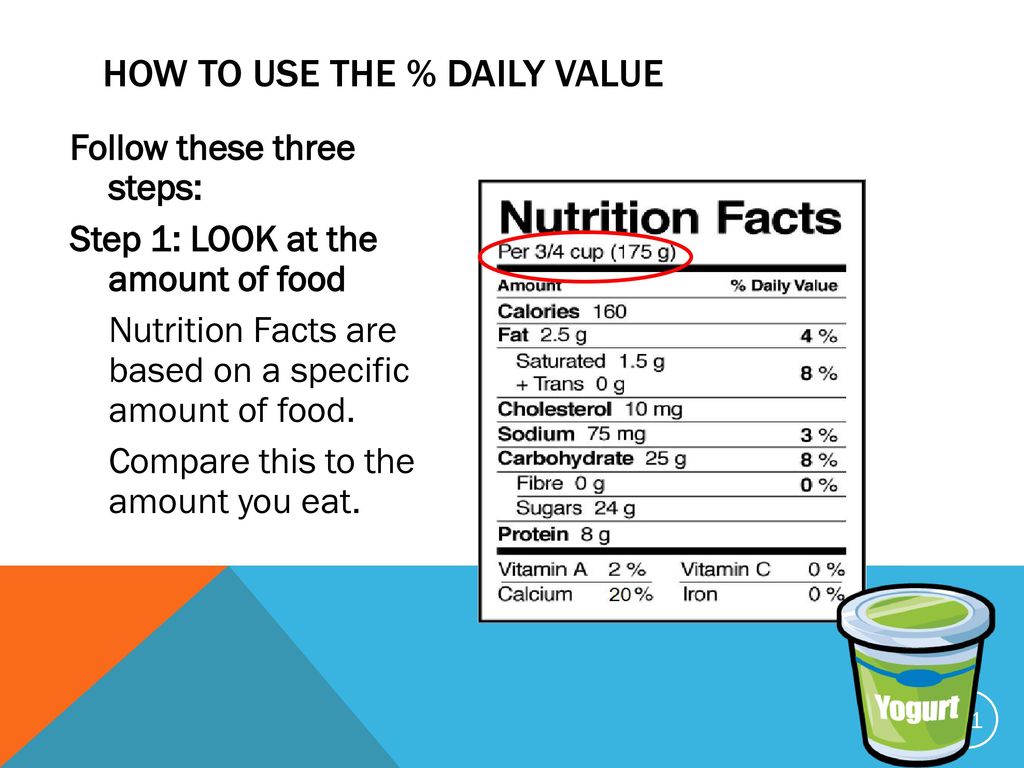


:format(webp)/cloudfront-us-east-1.images.arcpublishing.com/tgam/RZSKEA24INB2TKFNIIE6ZP3RXE.jpg)


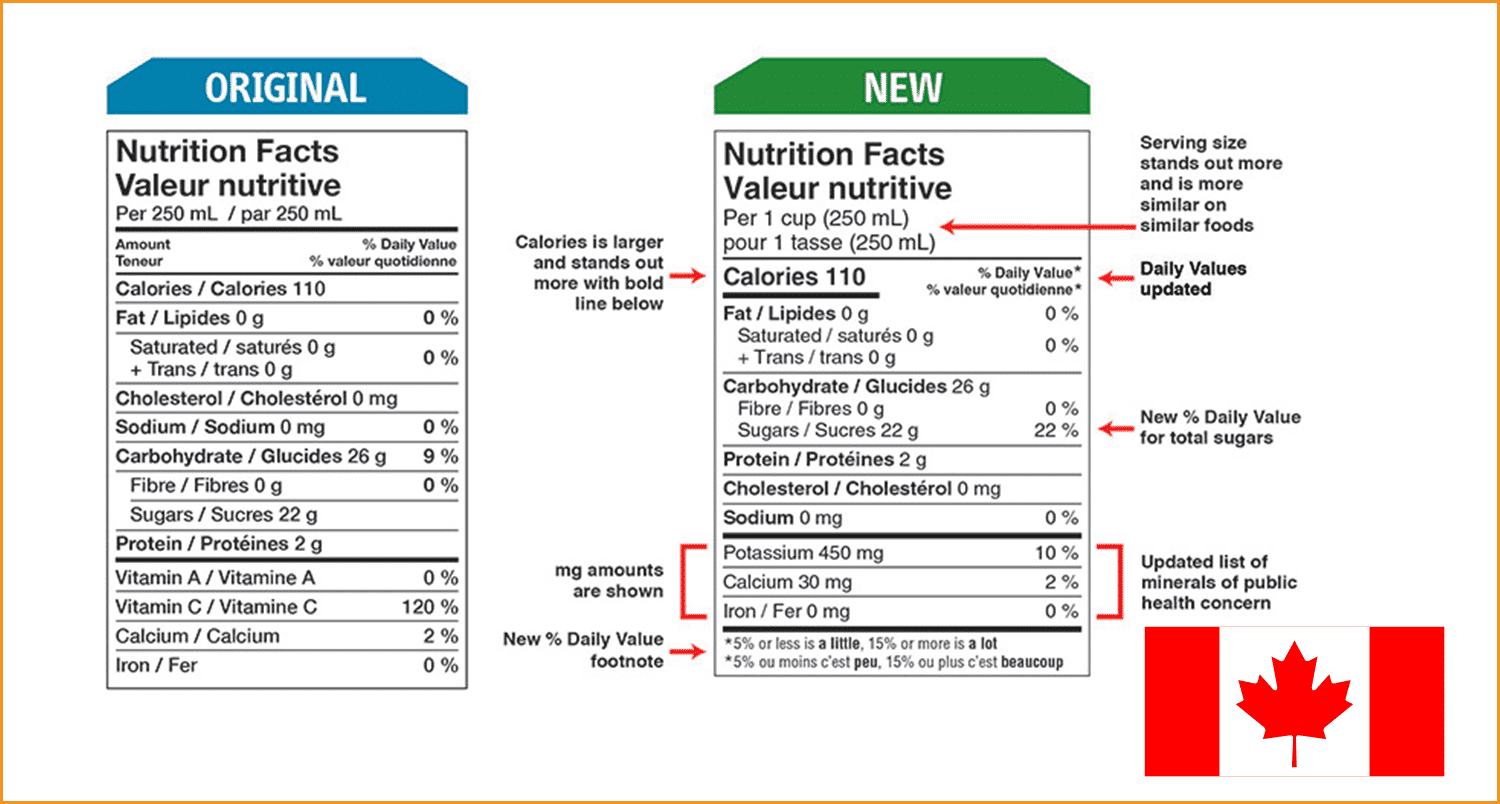
Post a Comment for "41 understanding food labels canada"